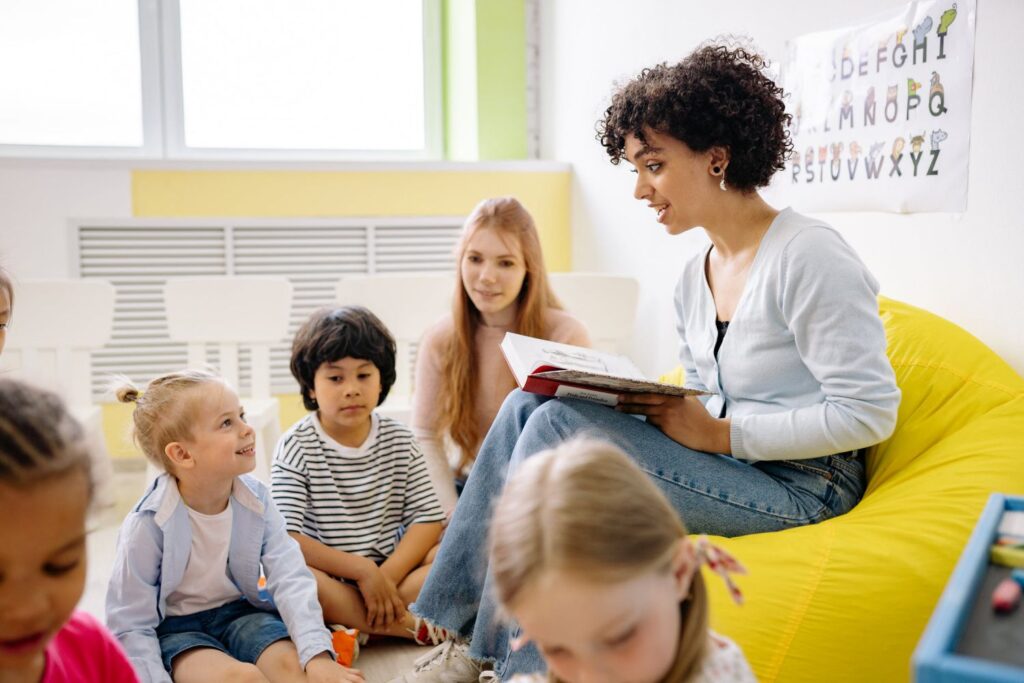Kindergarten is just another step in your child’s long line of “first” experiences. The first time at school, the first day away from you, and the first social interactions, to name a few.
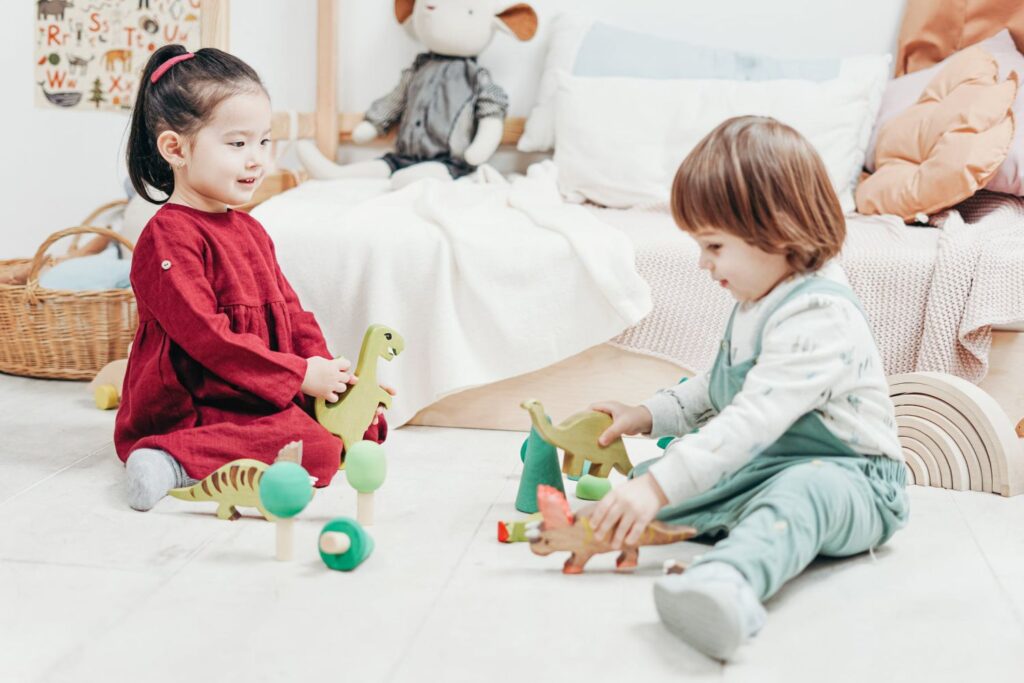
As an educator, it is my job to expose children to the greatest experiences possible within the confines of classroom learning. The following list is a compilation of what I feel are the most important aspects that should be covered during the kindergarten year.
Table of Contents
Top 13 Things Your Kid Should Know by the End of Kindergarten
The ABCs
Most people would think that letter recognition, reading, and writing would top this list but for me, it’s all about getting children to see the world both literally and figuratively through their own unique lens which we call literacy.
Literacy is defined as “The ability to read and write” but it’s so much more, it’s a way of thinking, communicating understanding the world around you. It’s one thing to be able to read a book or label cupboards or words, but it’s another level when children start making connections to their own lives and experiences.
Having children write in journals daily, create shared writing spaces to help build language skills, and having them read to themselves or with others (infants reading their favorite books to parents/caregivers), I feel is the beginning of literacy development in young learners.
Social Interaction
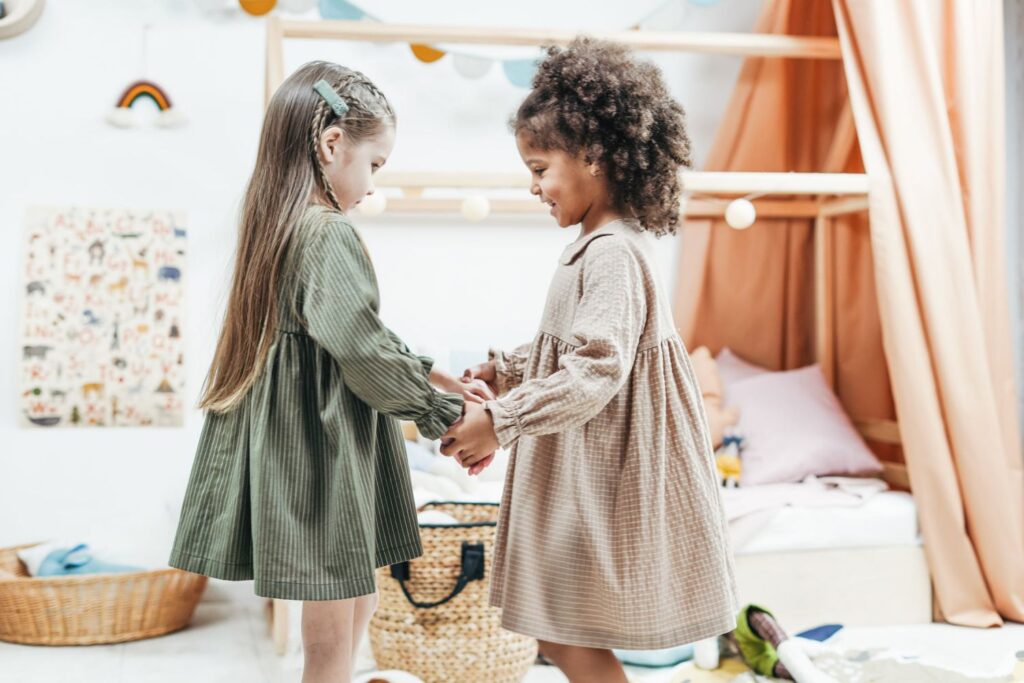
This sounds like an easy one but in fact, it is one that I think gets overlooked. In this age of technology, socializing is not as easy as it sounds.
Children need opportunities to learn how to take turns, problem solve and build relationships with their peers. During the course of a day at kindergarten, I have many chances to model these skills and allow children to work through differences, share, take turns and interact with their peers.
Children who have been given opportunities to practice these skills daily will be more equipped to deal with the issues that could potentially arise when they enter school full time.
Basic Motor Skills
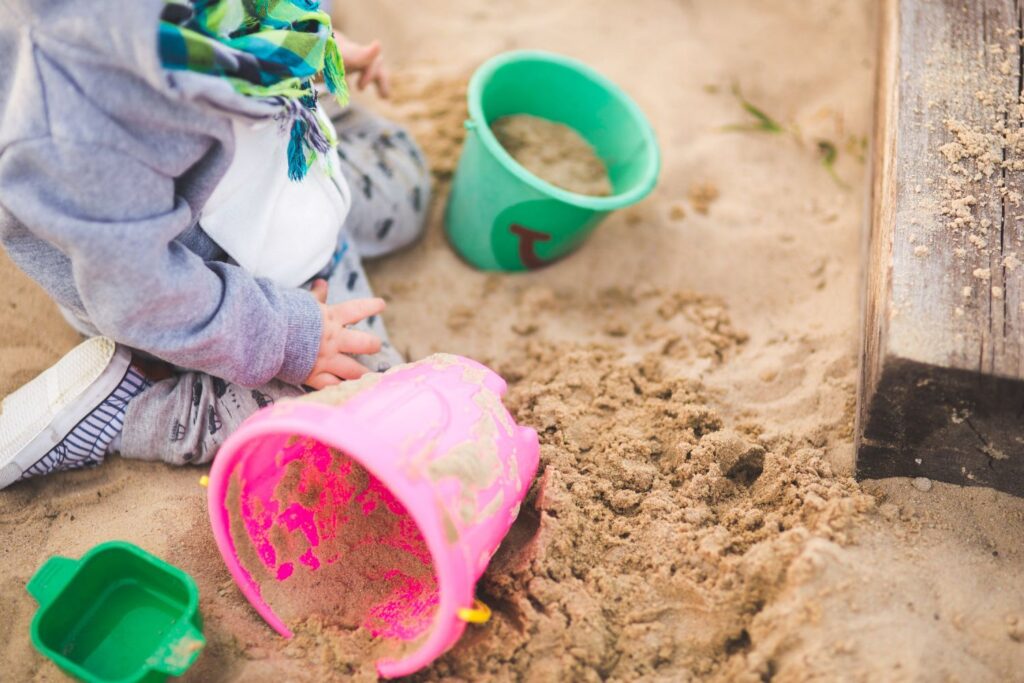
It is well known that if children are not allowed to develop fine motor skills in early childhood, the gap only gets wider as they age. Fine motor skills are essential for school readiness.
During their kindergarten year, children should be given chances to develop these skills but also build on them daily. We do a lot of cutting, pasting, and coloring in our classroom which all help with fine motor refinement.
I believe that having students write daily with a pencil, use scissors and paint with brushes will help them develop those skills needed for school readiness.
The World Around Them
As a young learner, is important for children to start getting a sense of what they can expect as they move through the education system.
This does not have to be something very in-depth but starting the process of giving them a little taste will help ease that transition.
With this in mind, I make sure to discuss what our typical expectations are at each grade level, knowing how many days they have until their birthday, knowing when holidays occur, where their school is located in relationship to home, etc. They need to know the answers to questions like this because they will be asked.
Self Care/Hygiene
Simple tasks such as washing hands, brushing teeth, and using the bathroom are just another part of our everyday life but to a child, it sounds so formal so I try to keep reminding them. We talk about hygiene after snack time, after lunch, and in the mornings when we are getting ready for school.
Music & Movement
Incorporating music into any young learner’s day is important because it encourages language development, opportunities to work on rhythm and beat, use of loud and soft voices, turn-taking, etc.
I also feel that having children sing, play drums, xylophones, bells, etc helps with not only language but self-confidence, body awareness and strengthens their social skills.
Daily Routines/Chores
Teaching children daily routines helps them get into the habit of knowing what is coming next, we typically do this through songs, shared writing spaces (our routine board), and/or storytelling.
Having children be a part of the daily making helps them see what is coming next and why it’s important to get things done in preparation for learning.
Social-Emotional Growth
It is no secret that young learners are mirror images of their teachers, therefore if you can set clear boundaries for your students and provide them with routines such as morning meetings, sharing time, etc then they will thrive.
By modeling these skills children can be more successful coming into school knowing what is expected of them and how to go about their day without causing too much commotion.
Reading
Reading should be a daily activity in the younger grades with children being given the chance to practice with a variety of texts.
When it comes time for instruction, however, parents should also be involved in their child’s learning by reading at home.
One way that I have found success is having parents read educational books to their students or allowing them to come into school during shared reading time.
Writing
Writing has taken an important role in the younger grades by allowing children to express their creativity through drawing, coloring, painting, and other mediums.
Once they enter kindergarten I like to extend this to include written words(student-generated sentences) that may be short (5-7 words), long (10+ words), or a combination of both( A word and sentence).
Math
Math is such an important part of our everyday life, simply by asking children to count how many steps it takes to get on the bus or add 2 more pieces to their puzzle they are already learning!
Once we begin instruction mathematics becomes a perfect opportunity for parents to show their children how math can be used in real-life situations. This allows for students to have hands-on activities at home as well as the knowledge that they can accomplish it on their own.
Science
Science is something that should begin before kindergarten, allowing children to explore through play and “hands-on” learning however once we begin discussing science concepts such as “backyard habitats” and “animal adaptations” it’s important to invite parents into the conversation.
By having adults participating in their child’s learning we allow them to connect what they are doing every day (playing, caring for animals, etc )with school lessons and by incorporating interactions with real-life situations.
Health, Safety & Nutrition
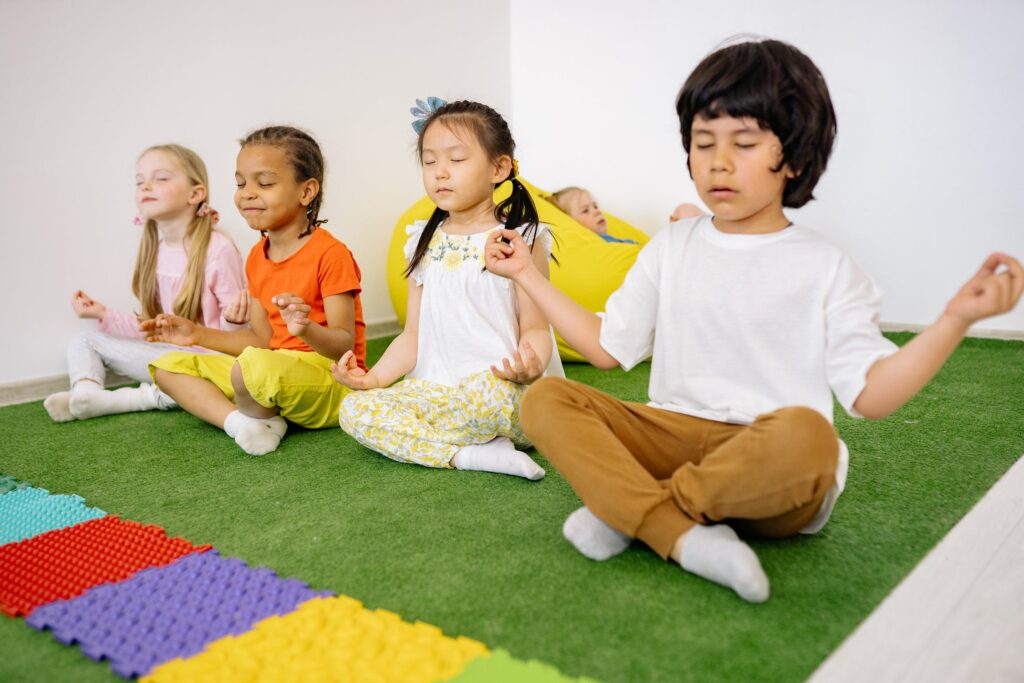
Health and safety play a major role in kindergarten because it’s important for children to learn the proper names of their body parts as well as how to keep themselves clean!
Teaching children basic nutrition facts such as where food comes from, good vs bad fats, etc helps them stay healthy.
Final Words
The main goal as a kindergarten teacher is to help children grow socially, emotionally, and academically as well as prepare them for the structure of being in school. Implementing these “daily practices” allows students to become more successful when reaching each learning objective.
Read: Instilling a Passion for Food in Your Children From Birth
It is also my hope that once parents see how important their role is in a child’s education they will help maintain this “home-school connection” by allowing their children to work on homework at home, checking in about school activities, and showing interest in what our class is learning.
Frequently Asked Questions
-
What should a kindergartener be able to read?
A kindergartener should be able to read short, simple words such as “I” and they should also be able to read longer sentences containing prepositions (“on the _____”).
-
What should a kindergartener know about math?
Kindergartens of today are not just learning numbers anymore. Instead, children are being taught math with the use of manipulatives. This is why it is very important for kindergartens to now know how to count objects, write numbers, read graphs and even measure items!
-
What is the highest reading level for kindergarten?
Although it is difficult to pinpoint a specific reading level, students should be able to read sentences containing rhyming words as well as those containing 3+ syllables.
-
What is the Lexile range for kindergarten?
The Lexile measure has been designed to show a child’s reading comprehension level, it begins from 0 and goes up to over 1,000. A Lexile measure of 250L means that this text is appropriate for children reading at the 2nd-grade level.
For Kindergarten: BR160L – 150L -
Can kindergarten be skipped?
Kindergarten is a grade in school! This means that it cannot be skipped, however, there are some cases where children may not attend preschool and will enter kindergarten without experiencing any formal education. In these cases, teachers work extremely hard to make sure the child understands every aspect of school before moving on to 1st grade.

